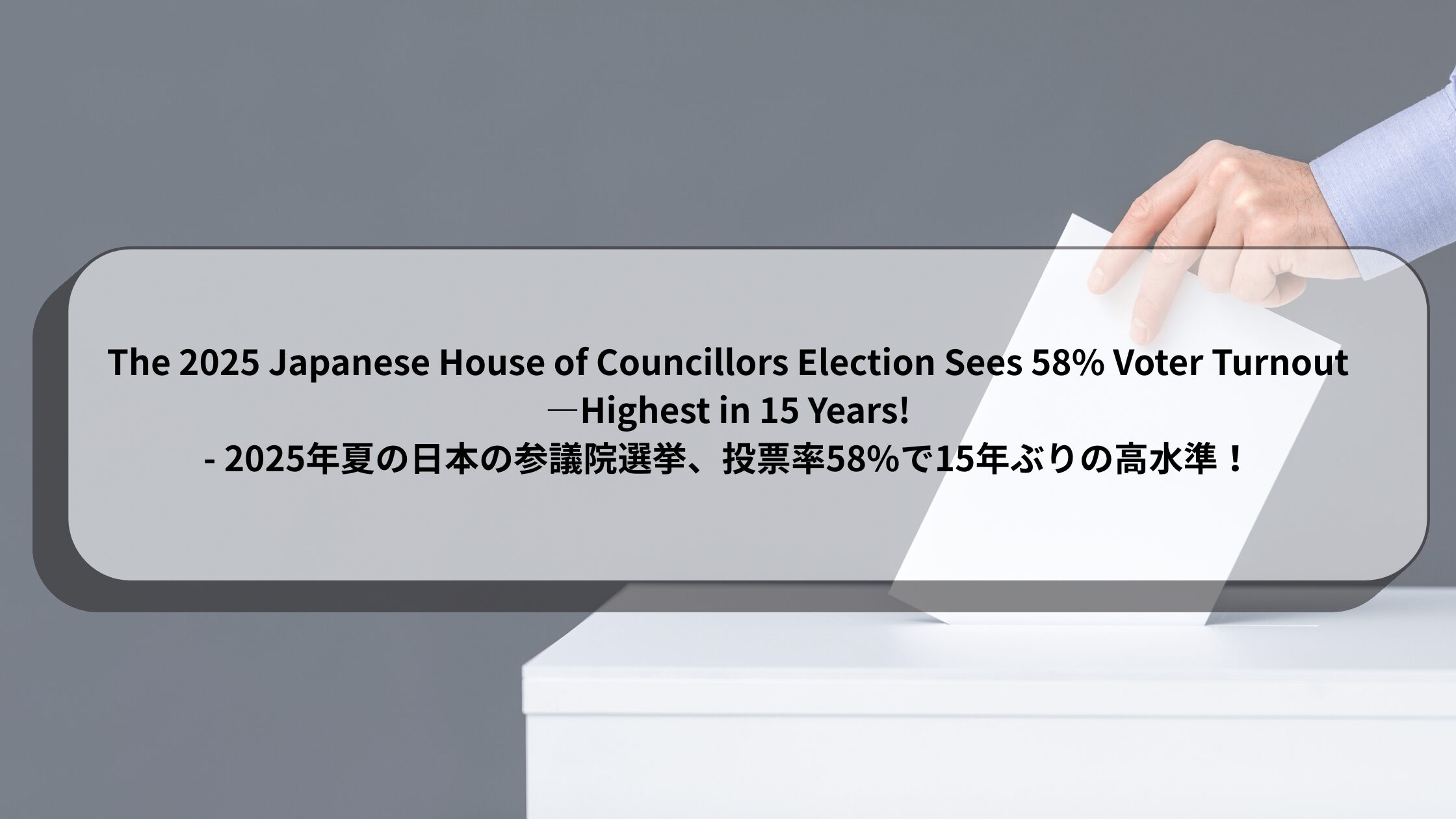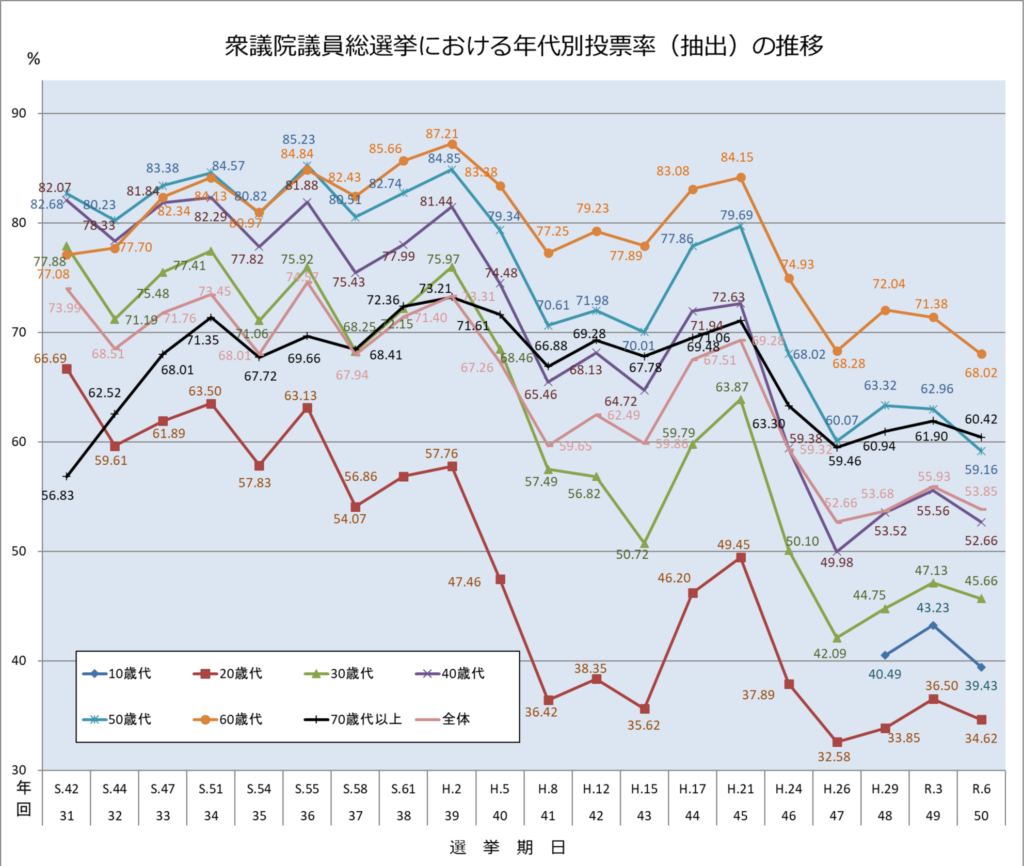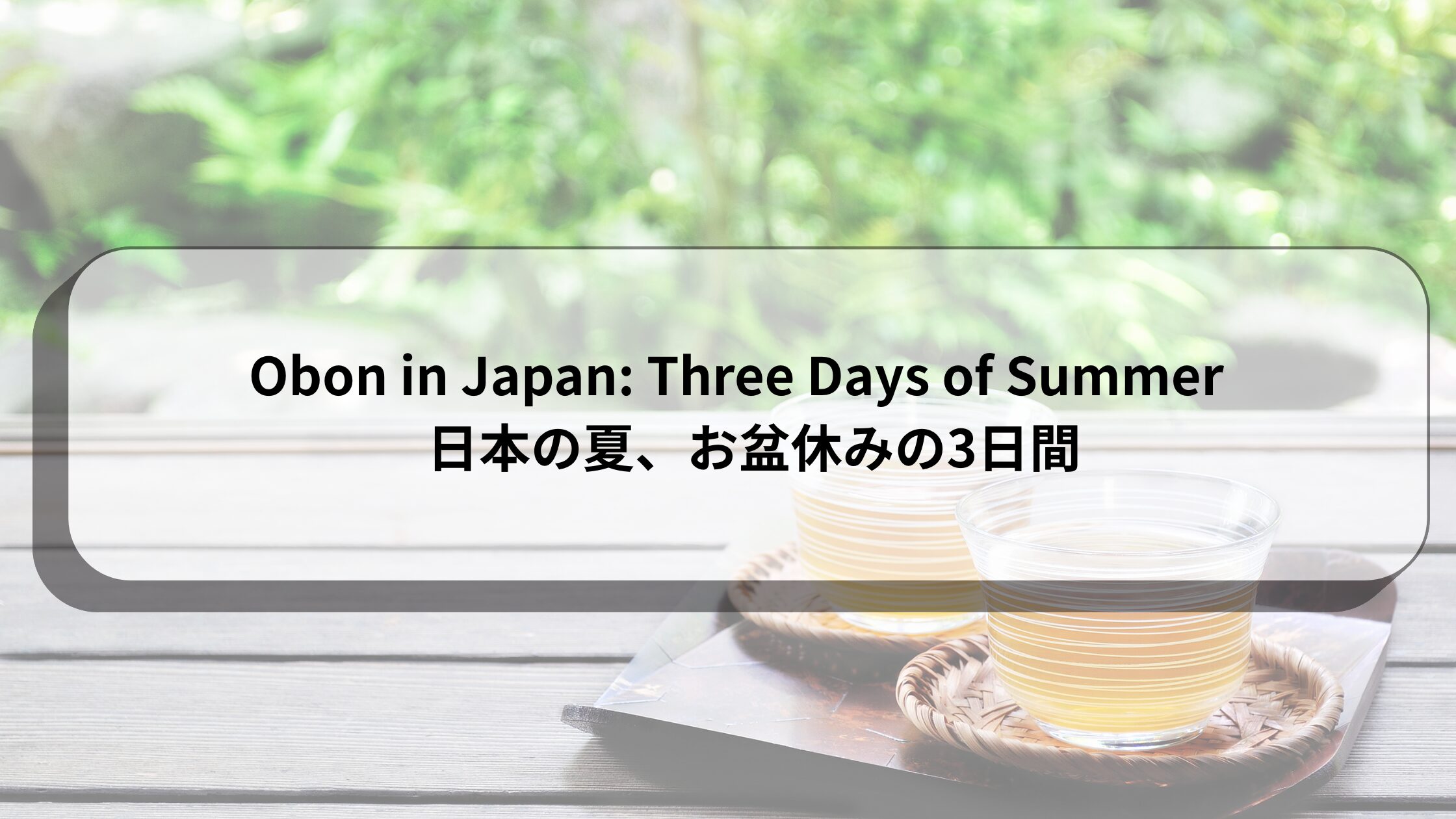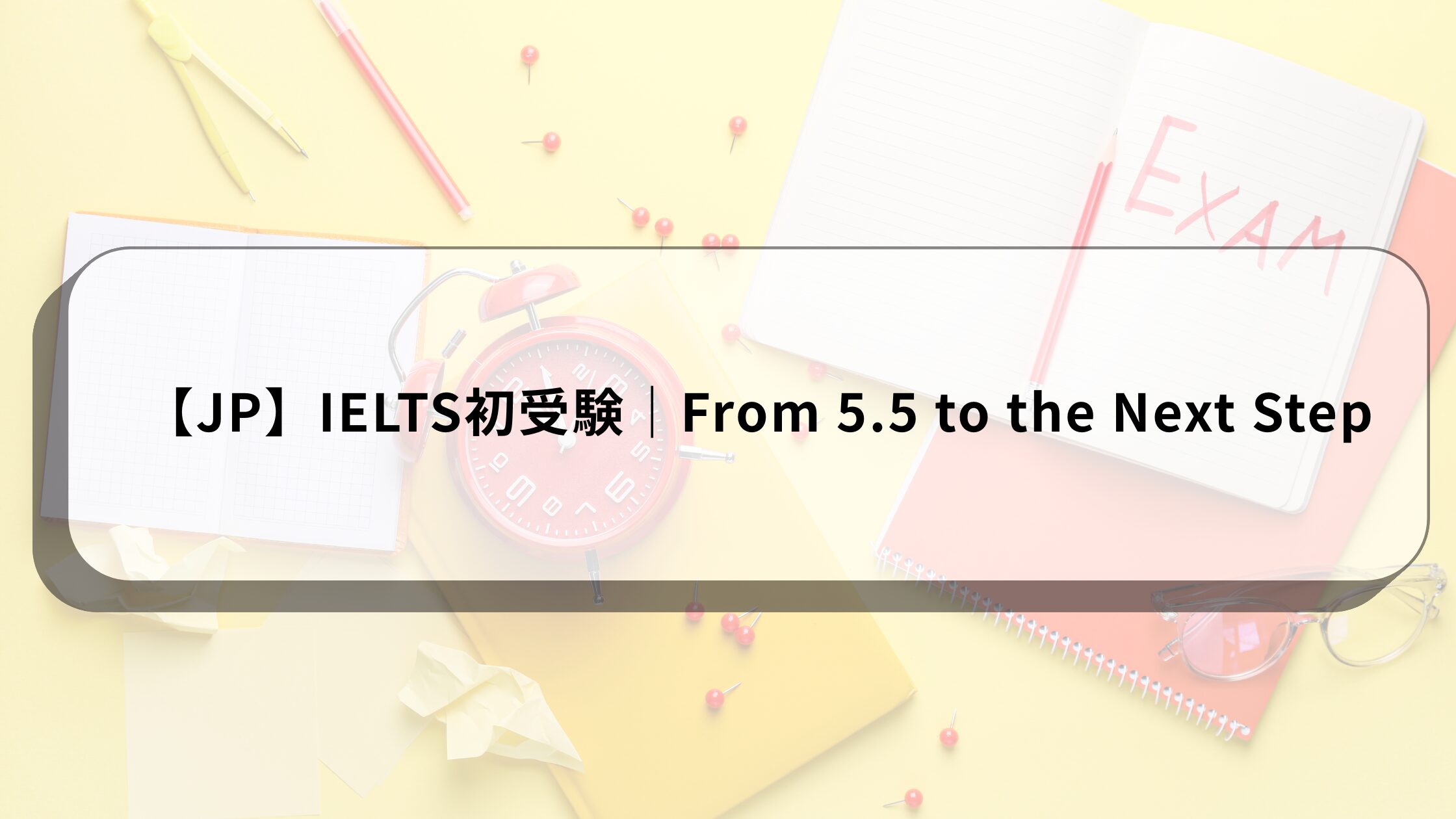The 2025 Japanese House of Councillors Election Sees 58% Voter Turnout—Highest in 15 Years!- 2025年夏の日本の参議院選挙、投票率58%で15年ぶりの高水準!

On July 20, 2025, Japan held its nationwide House of Councillors election.
2025年7月20日、日本全国で参議院選挙が行われました。
Although there were concerns about low turnout, voter participation reached 58% — the highest level in 15 years.
注目されていた今回の選挙、投票率が下がると懸念されていましたが、実際には58%という15年ぶりの高水準になりました。
But is this really considered “high” by global standards?
でも、これは本当に「高い」と言えるのでしょうか?
Key Points in This Election
Japan has a bicameral system, consisting of the House of Representatives and the House of Councillors.
日本は「二院制(Bicameral System)」を採用しており、衆議院(Lower House)と参議院(Upper House)があります。
This election was held to renew half of the Upper House seats, with the main question being whether the ruling party could maintain a majority.
今回の選挙では参議院の半数が改選され、与党が過半数を維持できるかが焦点でした。
The vote fell during the middle of a three-day weekend—a time when turnout typically drops.
しかも、投票日は三連休の真ん中。例年、こうしたタイミングでは投票率が下がる傾向にあります。
Japan’s Historically Low Voter Turnout
Voter turnout in Japan often hovers around 50%. One major reason is the political disengagement of younger generations.
日本の投票率は通常50%前後。若者の政治離れがその一因とされています。
- Turnout among those over 50: ~60%
50代以上の投票率:約60% - Turnout among teens and people in their 20s: under 30%
10代・20代の投票率:30%以下
Several reasons contribute to this:
その背景には以下のような理由があります:
- Politics seems too complicated or hard to understand.
政治が難しい・分かりにくい - A sense that one vote won’t change anything
一票で何も変わらないと感じる - Distrust toward politicians (e.g. perceived dishonesty)
政治家への不信感(不誠実な姿勢など) - A cultural taboo around discussing politics
「政治の話=タブー」という文化
Honestly, I used to be the same—believing my vote wouldn’t make a difference.
実は、私自身も数年前まではそうでした。「投票に行っても変わらない」と思っていたのです。

Data from MIC (https://www.soumu.go.jp/senkyo/senkyo_s/news/sonota/nendaibetu/)
Why Did Voter Turnout Increase This Time?
Rising Cost of Living
In April 2025, Japan’s Consumer Price Index (CPI) rose 3.6% year-over-year, but real wages have remained flat for 30 years.
2025年4月のCPIは前年比+3.6%。しかし実質賃金は30年横ばいの状態です。
People are increasingly frustrated that only their financial burdens are rising.
国民負担だけが増える現状に、国民の不満が募っています。
Aging Society and Pressure on Working-Age Citizens
Pensions are funded through insurance premiums paid by the working population.
年金は現役世代の社会保険料で賄われています。
Taxes and insurance costs now amount to 46% of national income in Japan.
現在、日本の国民所得に対する税と社会保険料の負担は46%です。
It’s no wonder many feel that “working doesn’t pay.”
「働いても報われない」と感じる人が増えているのも当然です。
Concerns Around Foreign Nationals
As more tourists and foreign workers enter Japan, some residents have expressed concerns over cultural and language differences.
外国人観光客や労働者の増加とともに、日本語や文化への理解不足からくる摩擦も話題になっています。
Some argue that, as everyday life becomes increasingly difficult for many Japanese citizens, the priorities of public services may need to be reconsidered. There are growing concerns that the distribution of support may feel unfair to some.
一部では、「日本人の生活が厳しくなる中、行政サービスの優先順位が適切なのか」という議論もみられ、不公平感を覚える声が上がっています。
Social Media Strategies Targeting Youth
Several parties focused their campaign efforts on social media platforms such as X (formerly Twitter), YouTube, TikTok, and Instagram — aiming to reach younger voters.
今回、X(旧Twitter)、Youtube、TikTok、InstagramなどのSNSを使った若者向けの発信に力を入れる政党が多数登場しました。
Clear, engaging videos and influencer collaborations helped make politics feel more accessible and relevant.
わかりやすい動画、インフルエンサーとのコラボ、シェアしやすいコンテンツが功を奏しました。
As a result, more young people felt politically engaged and were motivated to vote.
「政治が身近」と感じ、投票する若者が増加しました。
Influencers Driving Change
A growing sense of urgency led influencers and celebrities to actively encourage people to vote.
「今のままではまずい」という危機感が広がり、インフルエンサーや芸能人が「選挙へ行こう」と呼びかけました。
Many even shared their early voting experiences on social media.
SNSで期日前投票の報告も相次ぎました。
Comparing Japan’s Turnout with Other Countries
While 58% may seem high for Japan, how does it stack up globally?
58%という数字は日本では高いとされていますが、世界ではどうでしょうか?
| Country / Region 国・地域 | Voter Turnout (%) 投票率(%) | Notes 備考 |
|---|---|---|
| 🇧🇪 Belgium ベルギー | 〜95% | Compulsory voting with fines 義務投票+罰金制度 |
| 🇸🇬 Singapore シンガポール | 〜94% | Mandatory voter registration 登録義務制 |
| 🇦🇺 Australia オーストラリア | 〜91% | Compulsory voting system 義務投票制度 |
| 🇸🇪 Sweden スウェーデン | 〜82% | High turnout despite voluntary voting 任意投票でも高水準 |
| 🇩🇪 Germany ドイツ | 〜76% | Civic education + proportional representation 政治教育+比例代表制 |
| 🇫🇷 France フランス | 〜65% | Two-round voting system 二回投票制 |
| 🇺🇸 United States アメリカ | 〜56% | Registration system + voter ID requirements 登録制+ID義務でハードル高め |
| 🇯🇵 Japan 日本 | 〜58% | Voluntary voting system 任意投票制 |
The countries with the highest voter turnout tend to have compulsory voting systems.
90%以上の投票率が高い国は、投票が義務となっていることが多いようです。
The countries with voluntary voting system show low voter turnout.
任意投票の国は、投票が義務となっている国に比べると低い傾向にあります。
The Importance of Civic Education
I focus on Sweden and Germany because they have high voter turnout despite having voluntary voting systems.
特に注目されるのは、任意性であるにもかかわらず、投票率の高いドイツとスウェーデンです。
In Sweden and Germany, political education starts at school.
スウェーデンやドイツでは、学校で政治を学ぶことが当たり前です。
Mock elections and classroom discussions help students become familiar with voting before they turn 18.
模擬選挙や政党研究を通じて、若者が投票に慣れる仕組みがあります。
Germany runs a “Juniorwahl” (youth election) before real elections, giving students a chance to practice democracy.
ドイツでは、選挙前に「Juniorwahl(ジュニア選挙)」が実施され、本選挙に向けた準備がされています。
In Japan, political education tends to focus on systems and theory, and students rarely feel connected to real elections. This is a big difference.
日本では政治教育が制度や理論中心で、実際の選挙を身近に感じにくいのが実情です。これは大きな違いです。
Conclusion: Time for Japan to Shift
A 58% turnout is a step forward for Japan — but still low by international standards.
今回の58%は一歩前進したと言えます。しかし、世界的に見ればまだ低い数字です。
Japan needs education and culture that make politics feel relevant and accessible—especially to the next generation.
これからの日本には、政治をもっと身近に感じられる教育と文化が求められています。
Personally, I found this election exciting, and I encouraged friends and family to vote.
I hope this momentum continues and that voter turnout in Japan keeps rising.
個人的には、例年の選挙よりわくわくしましたし、周囲の人にも「選挙に行こう」と誘いました。
この風潮が今後も続いて日本の投票率がもっと上がればよいなと思います。



コメントを残す